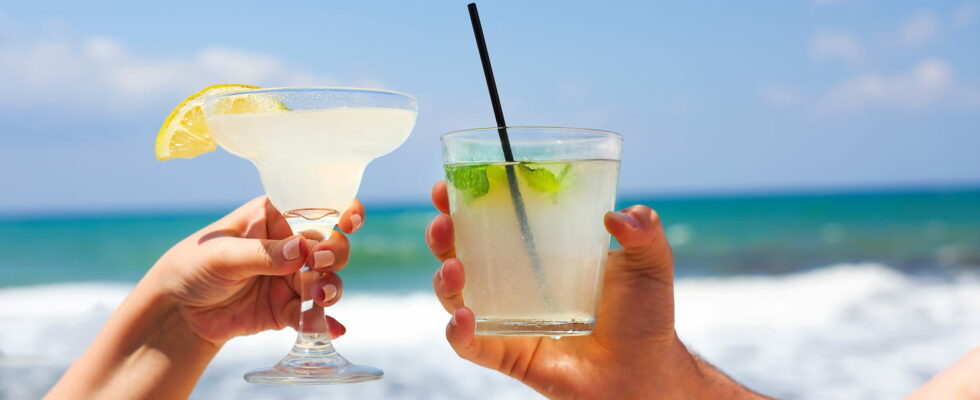It was the first time that the relationship between brain size and taste perception had been studied.
It’s summertime and it’s time for aperitifs. Are you more of a Mojito, Spritz, Cuba Libre, Piña Colada or non-alcoholic cocktail person? Because as strange as it may seem, your cocktail preferences could say a lot about your intelligence. At least that’s what researchers from the University of Queensland (Australia) suggest.
In their study published in the journal Behavioral Brain Researchresearchers followed more than 1,600 people living in Australia and the United States. They asked these participants to evaluate the taste of several drinks (sweet, sour, bitter, astringent, etc.). The size of their brains was then measured by MRI. At the end of their survey, the researchers noticed that people who appreciated bitter drinks more had on average a larger brain than those who could not stand the bitter taste. According to several studies, brain size would be a determinant of a person’s intelligence. This proportionality has been demonstrated on several occasions, proving that the larger the organ of thought, the more space it offers for neurons, information processing and memorization capacity. Obviously, brain size would not be the only parameter to take into account to measure intelligence: cerebral organization or certain neuronal connection mechanisms also play a strong role.
“We found that the left side of the entorhinal cortex, an area of the brain responsible for memory, smell and visual perception, was larger in people who found quinine less bitter.“, explained Daniel Hwang, from the University of Queensland’s School of Medicine, noting that this was the first time the relationship between brain size and taste perception had been studied. The discovery of a link between taste perception and brain size could help us better understand people’s eating behaviors, improve their eating habits and treat possible eating disorders.
Extracted from the bark of the “quinquina” shrub, quinine is the main aromatic component of tonic waters, such as Schweppes Tonic Original©, which is used in the composition of the famous “gin and tonic”. Quinine is used in these drinks of course at very low concentrations (up to 0.1 g of quinine per liter), which is not dangerous for health. However, people with heart problems are advised to avoid consuming too much of it as a precaution. Similarly, alcohol (and cocktails containing alcohol) should be consumed in moderation.
